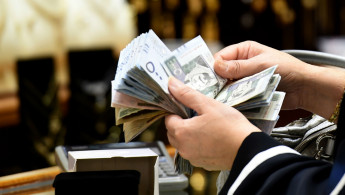Open for business: Riyadh ends mandatory prayer-time shop closures
The move, announced on Tuesday, permits stores and restaurants to remain open all day in exchange for a fee, the state Saudi Press Agency reported.
“This is positive news that I expect will increase consumption and create jobs,” said Mazen Al-Sudairi, head of research at al-Rajhi Capital in Riyadh. “Fast-food restaurants, cafes and cinemas will be the primary beneficiaries.”
Trading usually comes to a halt around midnight in the kingdom, and all businesses, including restaurants, cafes and stores, are required by law to shut during prayers throughout the day.
Read more: Comment: Nicki Minaj just schooled western leaders in saying no to Saudi petrodollars
A tweet published by Saudi-owned television channel Al-Arabiya which was later deleted said shops would now be allowed to stay open during prayers.
But Khalid al-Degaither, a Saudi official at the ministry implementing the new move said the cabinet decision “doesn’t include carrying out commercial activities during prayers and it doesn’t touch any previous decision related to prayer times.”
Al-Degaither did not clarify whether shops operating during prayers would be violating the law despite repeatedly being questioned during a television interview.
Last year, a government document called for an end to the prayer closures, though nothing has surfaced since.
The move comes as Saudi Crown Prince Mohammed bin Salman pursues a sweeping “liberalisation” drive that has led to new cinemas, concerts and sporting extravaganzas.
These apparent reforms however, do not include measures to allow freedom of expression or association or improve Saudi Arabia’s human rights record.
Mohammed bin Salman’s reform is seen by some as an attempt to blunt public frustration over an economic downturn and high youth unemployment.
Saudi Arabia is also moving to boost domestic spending on entertainment and tourism, as the kingdom has reeled from low oil prices.
While Saudi Arabia is yet to offer tourist visas, the country has fast-tracked electronic permits for international visitors to attend such festivals to further boost revenue.
Follow us on Twitter: @The_NewArab





 Follow the Middle East's top stories in English at The New Arab on Google News
Follow the Middle East's top stories in English at The New Arab on Google News
![The UAE is widely suspected of arming the RSF militia [Getty]](/sites/default/files/styles/image_330x185/public/2024-11/GettyImages-472529908.jpg?h=69f2b9d0&itok=Yauw3YTG)
![Netanyahu furiously denounced the ICC [Getty]](/sites/default/files/styles/image_330x185/public/2024-11/GettyImages-2169352575.jpg?h=199d8c1f&itok=-vRiruf5)
![Both Hamas and the Palestinian Authority welcomed the ICC arrest warrants [Getty]](/sites/default/files/styles/image_330x185/public/2024-11/GettyImages-2178351173.jpg?h=199d8c1f&itok=TV858iVg)